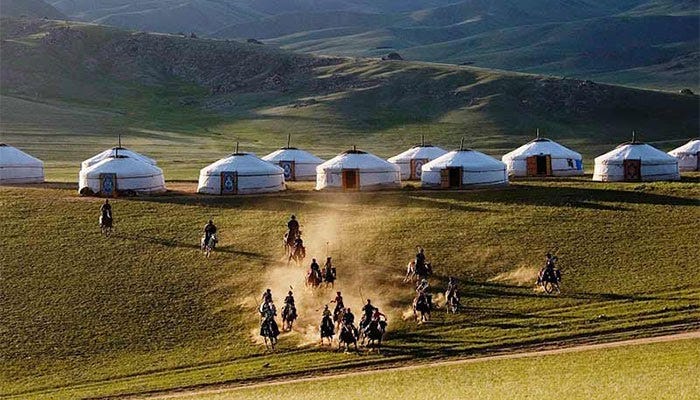Steppe 1.1a: A nowhere man's world
Part 1 of 2
Previously on the Steppe:
Heraclitus held that “all is change”, contra his great rival Parmenides, who argued for a fixed eternity. Human history comes down on Heraclitus’ side, but given the pace of human affairs before the modern era, a lifetime might not be long enough to feel it for yourself. For the ancients, the torpor of the present always dominated, because their world changed imperceptibly. Pharaonic Egypt spanned more centuries than lie between Julius Caesar and us. But even a universe defined by eternal truths, like the power of god-kings on earth, can be upended overnight, leaving mortals to confront a startling new landscape of possibilities.
From the steppe, the frontier of opportunities unfurled endlessly to west and east. Nomads traversed the breadth of Eurasia in a matter of years, forever chasing the next conquest. A steppe warrior born in a tent on the open plains might die in a sumptuous palace overlooking a teeming city. We’ve seen epochal change in the blink of an eye in our own lifetimes. Remember the payphone? Quick, where’s your nearest one? Even the name of the 2002 film Phonebooth would bewilder most children today. Maroon 5’s 2012 Payphone video was already on the cusp of being nonsensical when it was made. Less than a decade later, my child of the twenty-teens stares just as uncomprehendingly at the video’s flimsy little flip phone as at the hulking phone you feed quarters. Mobile technology in just a few years rendered obsolete what had been a ubiquitous urban fixture for generations, churning through each sequential successor in short fractions of decades.


